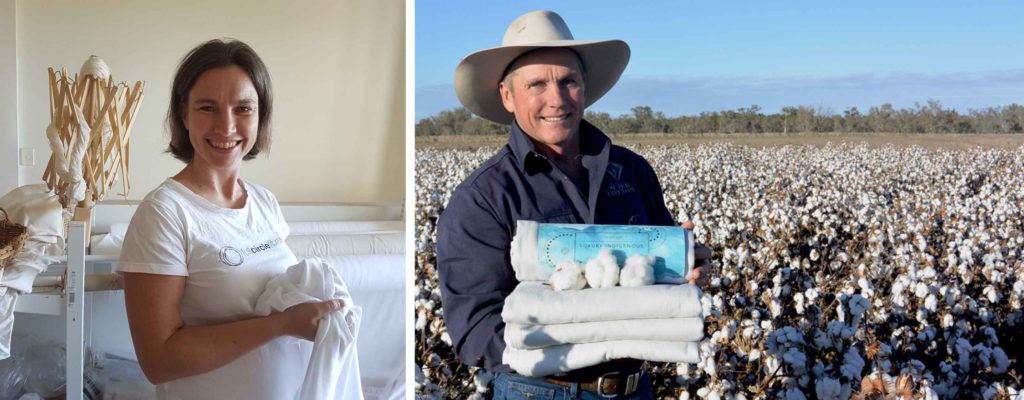During this coronavirus lockdown, Meriel Chamberlin has had more cold contacts than ever before about her local cotton supply chain Full Circle Fibres which provides beautiful, ethical and traceable fabrics, fibres and yarns. Meriel works directly with cotton growers at St George in south west Queensland, Glenn and Rebecca Rogan, from Australian Super Cotton, and then with local manufacturers for every stage.
As #15 in the ARISING from Disruption conversation series, Meriel chatted with Jane Milburn about adaptation, resourcefulness and self-sufficiency during this time of pandemic.
“This disruption of supply chains and our dependence on them has caused a lot more people to think about buying local and supporting local. Designers, brands and makers think customers are going to want Australian made and we have had practical benefit from the Aussie dollar value and cost of freight (air freight has gone through the roof) which means my offer has become more economically sustainable than before, especially in the category of ethical and sustainable fabrics.’’
“While Australia’s textile industry was much larger 20 years ago, it is quite some time since the nation focused on making the most of single-origin traceability. There is one stage not here yet, which is the spinning to turn the fibre into yarn that is still done in Manchester, UK. Usually Australian fibres are shipped overseas and mixed with others in the global supply chain. I decided that I would like to know where my fibres come from and that others would like that too.’’
One of main opportunities for Meriel during lockdown has been to take a hard look at how we do PPE (personal protective equipment) and the colossal waste in the system. “Along with responding to an increase in interest in my classic products, it is abundantly clear we need to do something radically different, smart and clever, and be even more protective than the PPE available out there. We need equipment that can be reused and to protect people from great shortages, as well as creating local manufacturing opportunities. ”
Listen to the conversation here, or read the notes below.
What Meriel Chamberlin said:
